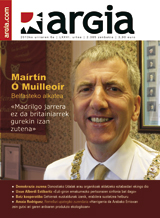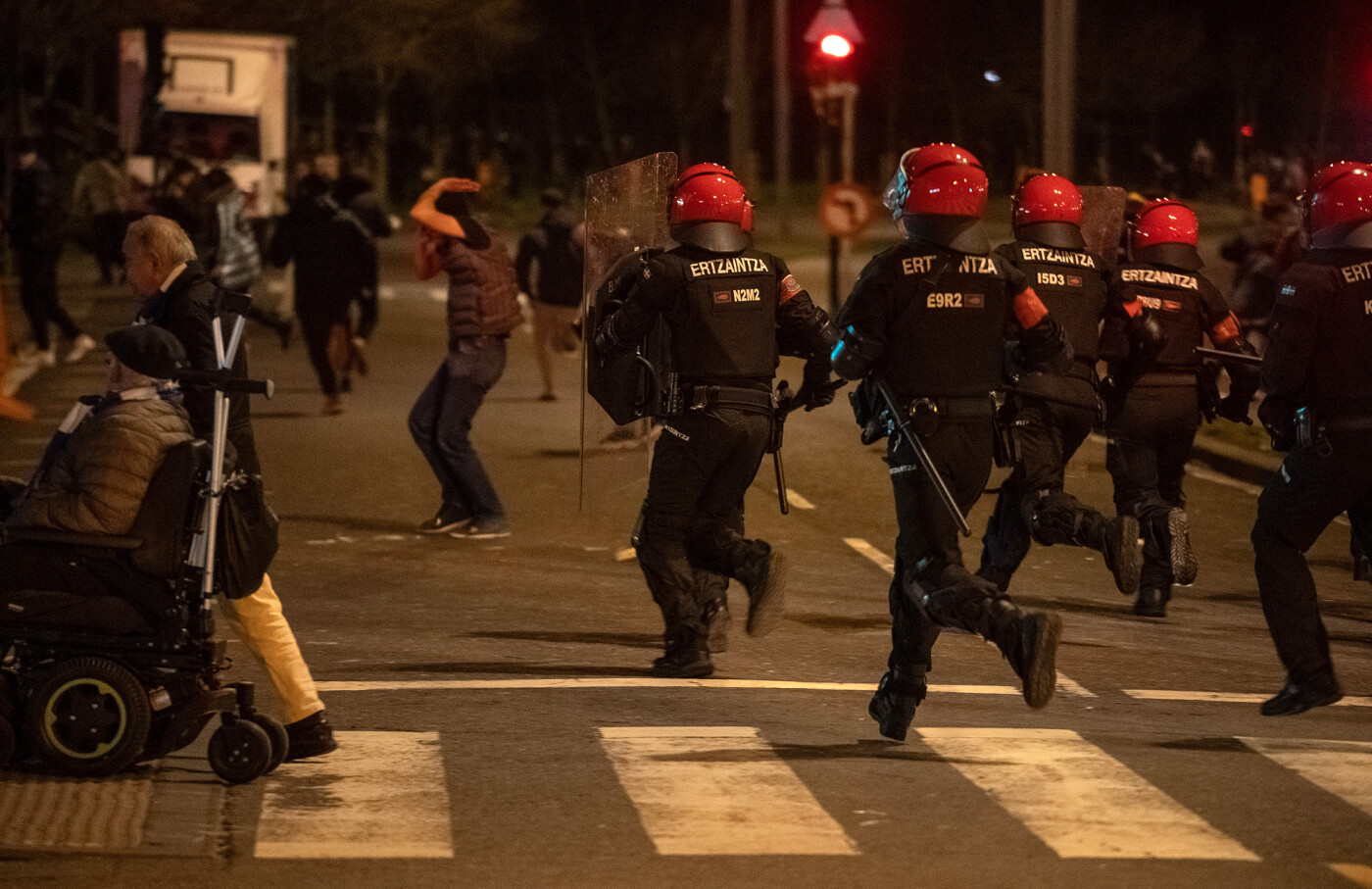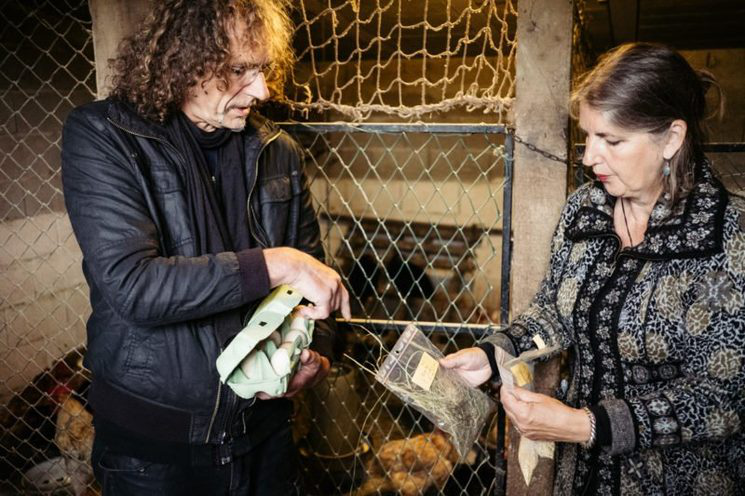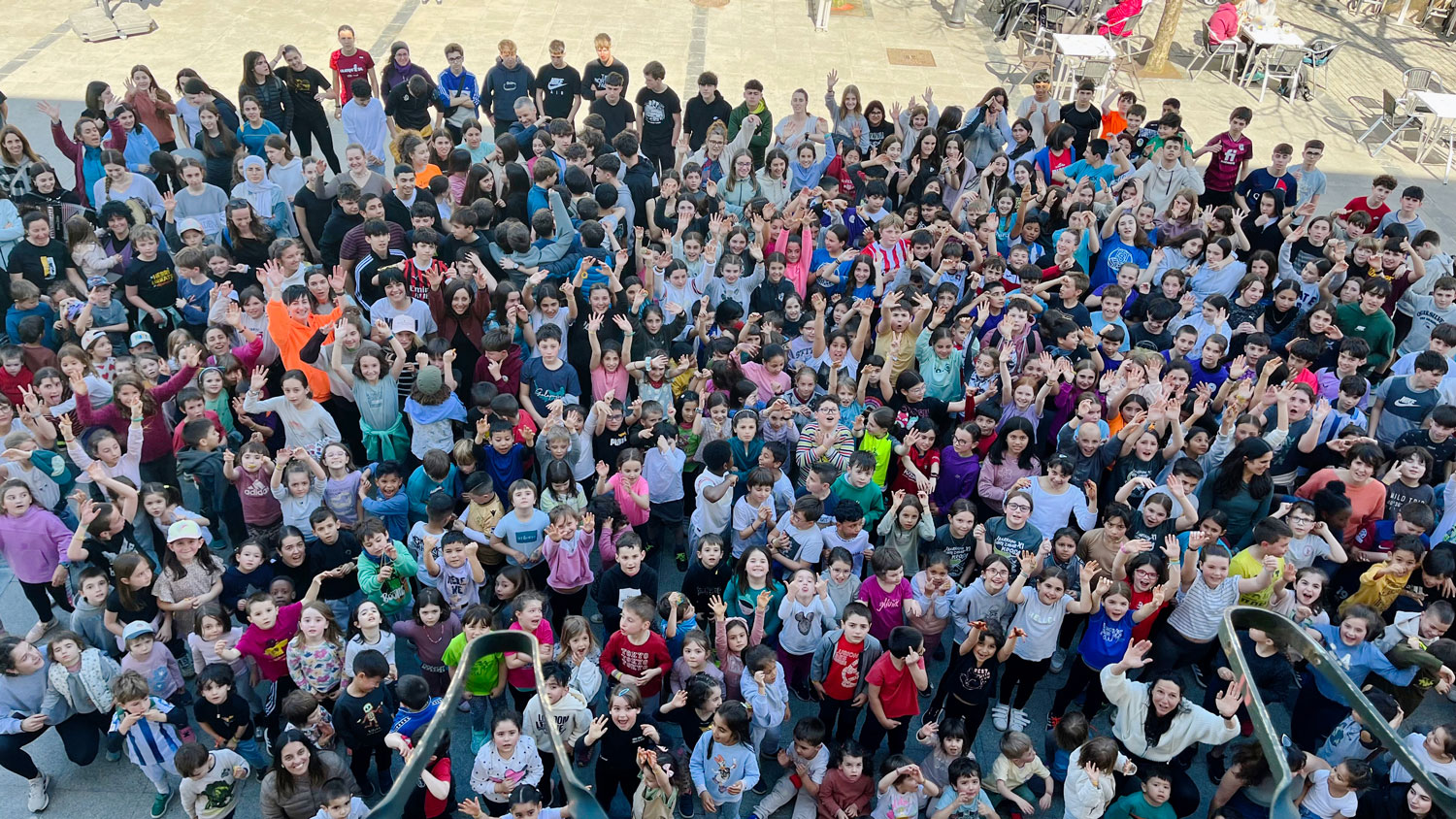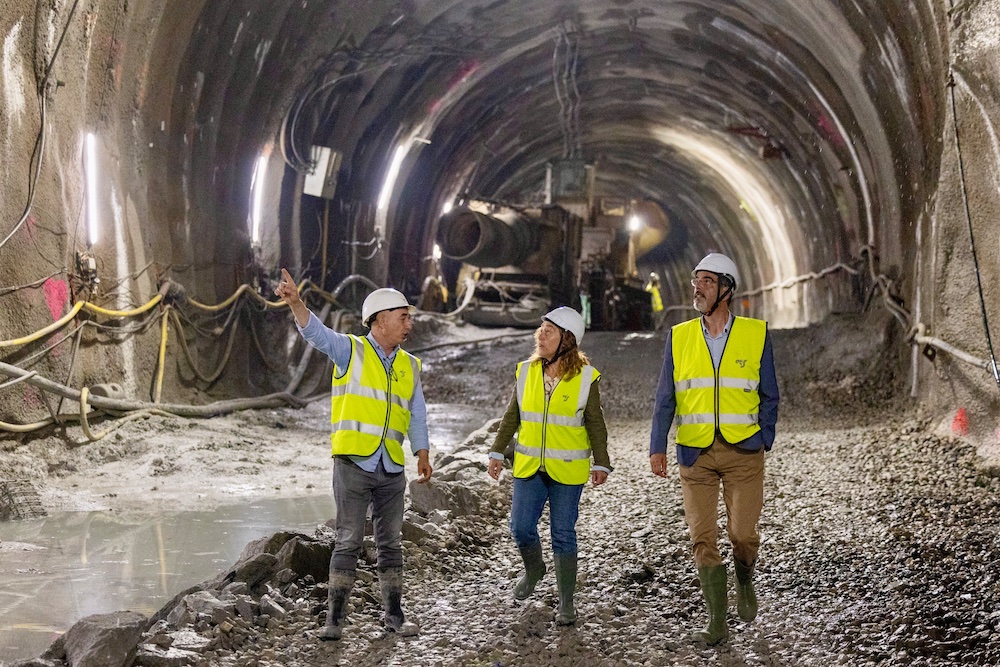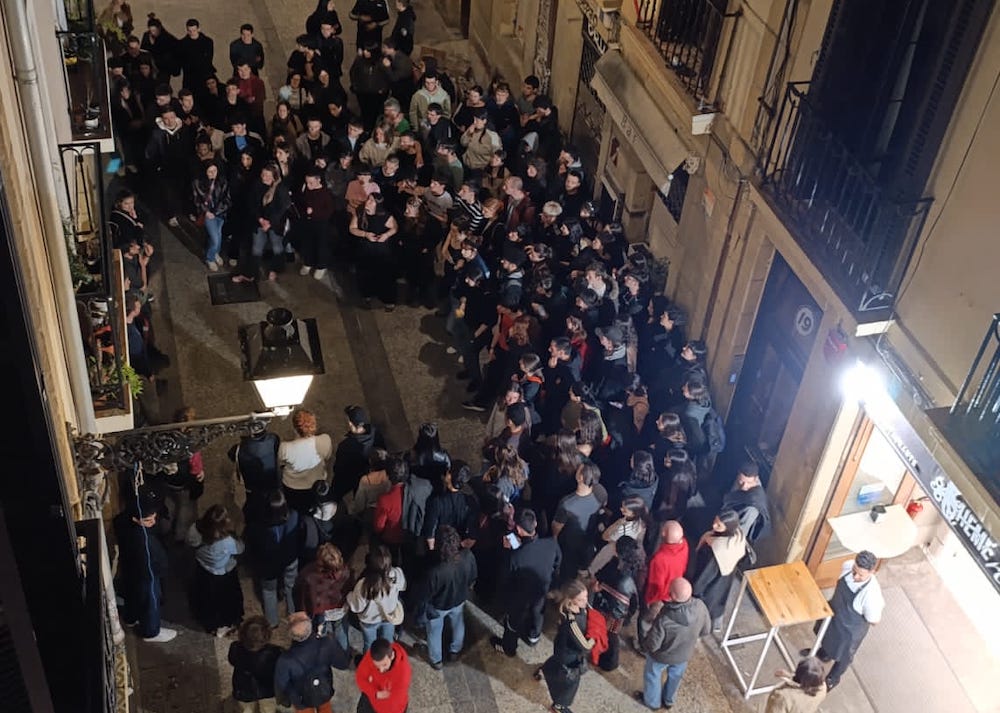By forgotten corners
- This year they have presented the book Errezildarren ateraldiak, which collects some curious, vexed and tales of the inhabitants of Errezil, demonstrating that this Gipuzkoan town is very special. On this beautiful tour below we will visit the most famous corners of Errezil, such as the top of Hernio, and the most unknown.
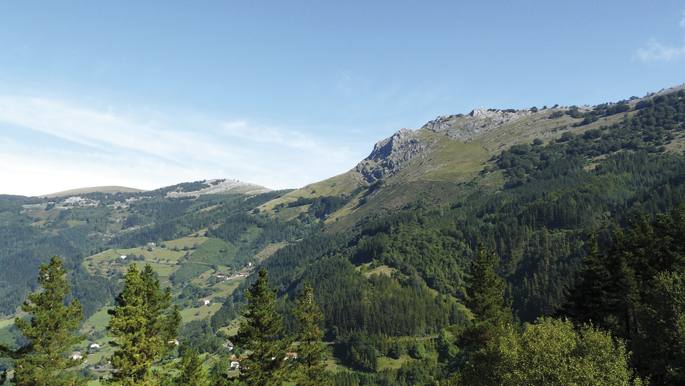
It is evident that Mount Hernio is the most characteristic and significant peak of Errezil. Hernio can be seen in almost every corner of Gipuzkoa and attracts hikers from here and there almost every day of the year. Especially on Sundays in September, where a pilgrimage is held at the Zelatun Pass.
As we reach the door of the church of Errezil, we raise our heads and discover the cross of Hernio – we should say the crosses – in the distance, almost 800 meters above. It is an abrupt, certainly southern, aspect. The North is no less.
Although the Hernio summit is the most visited of these places, it is not the only summit. You can also climb on the tour proposed on this occasion, if you like, but we will give prominence to the area on the other side of the Zelatun hill, with the top of Akategi or Gazume at the head. It is a forgotten area of the massif of Hernio, a forgotten corner of Gipuzkoa.
That Gipuzkoa of the past
We will start and end this unusual tour in the Etumeta district of Errezil. It is recommended to drive to it, although you can reach it from Azpeitia – after climbing the summits of Arauntza and Sañu – from the Lasao district, on the banks of the Urola River, or from Aizarna, extending the tour a bit. We will start the tour at the height of the old Sale of Etumeta. There, according to legend, Ignatius de Loyola once rested on his return from Rome. The Etumeta neighborhood is one of those places that are stuck in memory as a sign of a Gipuzkoa that we already had in the past. There it breathes calm, as if the clock had stopped suddenly.
We will leave the neighborhood behind and climb the hillside, first by the hayedo and then by the grassland, until in a few meters we will quickly catch the height. The steep slope will become brawls bordering the hill of Txoondegi and we will soon reach the cross of the collado of Komisolatza. The summits of the Indo will be the final point to breathe, as then a rather soft, almost restless slope will rise to the summit of the Gazume.
There is no loss on the way, and as we go further up, the perspective will expand. We can climb to the summit of the Indus (758 m) if we separate a few meters from the road, but unfortunately most mountaineers are thrown up and this peak, like many others, is one of those that are forgotten. By the time we reach the hill of the roses we will have already surpassed the 200 meters of slope from the Komisolatza and we will follow the path towards Mendibeltz, although it is also possible, without climbing Mendibeltza and Gazume, to reach directly the hill of Zelatun, passing through the edges of Elkamen Txiki.
We went out of the forest and went up the meadow and quickly reached the top of Mendibeltza, patron of Gazume. We go down a few meters and face the final meters of Mount Gazume, ascending between stones. We will arrive in a few minutes to Gazume (1,003 m). From this summit you can enjoy a wonderful view, especially striking the beauty of the western wall of Mount Hernio, which is in front of us.
The beloved summit in Hernio
Our march will be directed to Iturriotz, but once in Errezil and in the massif of Hernio, it seems a sin not to touch the top of Hernio. We will quickly descend from Gazume to Zelatun, first between stones and then through the grass, following some paint marks, especially in the first part. On Sunday in September, at this strategic crossroads, the rhythms of the trikitixa prevail, and the crowd congregates without making a mistake, although looking back at the photos of yesteryear and those of today it may seem that the pilgrimage of Zelatun has descended. In any event, we will have the opportunity to replenish forces in the recently reformed Zelatun chabola, and we will put the body back in a position to deal with the last Hernio hill.
Considering that after going up to Hernio we will have to go back down to Zelatun, and wanting to complete the circular tour as far as possible, I propose that you leave the normal route for the descent and go straight up the shore. Although it seems impossible from below, there is a winding path that ascends between rocks. To do so, we will have to climb directly the meadow, with a strong slope and outside it, until we reach the foot of the rock. There's a slice where we'll find trail tracks, besides finding one or the other. Once the steep slope is over we will reach the crest and we will see the cross of Hernio very close, although to reach it we will still have to do some work between the stones. In a few minutes, we will reach Hernió, one of the most beloved cimes of Gipuzkoa (1.072 m). In addition to the main cross there are many others on the top. We will have all Gipuzkoa at our feet, but above all Errezil, how not.
We will go down to Zelatun on the normal road, following the path that several generations have stepped down, always with Errezil in sight. The road between Zelatun and Iturriotz is also well known, stepped over and over by many mountaineers and hikers. There is no loss. We are on an old classic road: The GR34, which connects San Sebastian and Arantzazu, passes through Zelatun and the road to Iturrioz is made up of the red and white marks of this long journey, enjoying the road.
We will find a hermitage of Iturrioz and a giant dwarf, in the 16th century. Dependent. There also spent one night Ignacio de Loyola, coming from Paris to Azpeitia. Iturriotz, Etumeta... Step by step we are unintentionally discovering the entire pilgrim's path...
Erdoizta
We have the last leg of the march, the most unknown and attractive part. To return to Etumeta we will first go down from Iturriotz to the hole of the Granada River, following the track on which the vehicles can also circulate, without the possibility of being lost. The slope is abrupt and in a few kilometers we will easily lose the height. In the moat of Granada Erreka, we will pass through the farmhouse where Iñaki Eizmendi Basarri was born, before facing a strong slope again. Then we go up to the hermitage of Erdoizta, one of the few circular hermites of Gipuzkoa, an unknown, forgotten and magical place. The great mountaineer and ethnographer Luis Pedro Peña Santiago, in his work Walks in Guipúzcoa, says the following: “You have to go to Erdoizta. There the road dies, in the center of the square, without deviating. The hull of this Errezil district consists exclusively of the hermitage and two dwellings. It is a forgotten place in our country, a new place, which we thought did not exist but which is part of a Gipuzkoa... I like Erdoizta with a bad time, the days when the fog covers the slopes of the Indus, and when the moisture makes the leaves of the beets shine, those are the days when Erdoiza shows us its strength...”.
It cannot be denied that this is an attractive and mysterious place. To complete the unforgettable tour we have made in these forgotten corners of Gipuzkoa, you only need to join Erdoizta and Etumeta, travelling two or three kilometres by road.
Galarra-saletxeko Bartolo da beste fenomeno bat izana. Garai batean Landetan bazkaltzen zuen beti, apopilo. Beti prezio jakina ordaintzen ohituta zegoen nonbait. Menuaren prezioa igo egin zuten garai hartan, baina Bartolok beti bezala bota zuen hamar eurokoa. Bordatxoko Anak esan dio:
– Aizu, Bartolo, ezta ailatzen!
–Eon haina lasai, bultzako´zeonat-eta –diruari bere aldera bultza eginez.
******************************
Beste behin, zerbitzaria lanean iritsi ezinda zebilen tabernan eta Bartolo adarra nondik joko. Berotu zaio zerbitzaria:
– Mundu hontan danok gaituk amaik eindakuak, e?
– Ni ez –Bartolok.
– Hi ez? Hi zeinek eindakua haiz ba?
– Amak ez, zaharrena naun-ta. Ni jaio arte ez huanan ama, hua ni jaiotakuan ein hunan ama. Aurretik neska edo nahi denana izengo huanan, baina ez ama.
Euskal Herriko Etxebizitza Sindikatu Sozialistak deitua, milaka lagun batu dira gaur eguerdian Donostian, “etxebizitzaren negozioaren aurka” eta “etxebizitzarako eskubide unibertsalaren alde”.
Euskal Herriko Pentsiodunen Mugimenduak deitutako eta ELA, LAB, ESK, CGT, CNT, STEILAS, ETXALDE eta HIRU sindikatuek babestutako manifestazioak Bilbon, Gasteizen, Donostian eta Iruñean izan dira. Bertan, Euskadiko eta Nafarroako gobernuei eskatu diete zerga eta aurrekontu... [+]
2024ko martxoan jokatu zen Realaren partidu baten atarian zauritu zen foam jaurtigai batekin, eta Donostiako ospitaleko Zaintza Intentsiboko Unitatean ingresatu zuten. Lurrean zela ostikoa jo zion ertzainak adierazi du "estropezu" egin zuela harekin.
I'm talking about Interview. With water and sand
Authors: Telmo Irureta and Mireia Gabilondo.
The actors: Telmo Irureta and Dorleta Urretabizkaia.
Directed by: Assisted by Mireia Gabilondo.
The company is: The temptation.
When: April 2nd.
In which: At the Victoria Eugenia... [+]
Duela lau urte abiatu zuten Azpeitian Enkarguk proiektua, Udalaren, Urkome Landa Garapen Elkartearen eta Azpeitiako eta Gipuzkoako merkatari txikien elkarteen artean. “Orain proiektua bigarren fasera eraman dugu, eta Azkoitian sortu dugu antzeko egitasmoa, bere izenarekin:... [+]
Aljeriatik datoz Mohamed eta Said [izenak asmatuak dira], herri beretik. “Txiki-txikitatik ezagutzen dugu elkar, eskolatik”. Ibilbide ezberdinak egin arren, egun, elkarrekin bizi dira Donostian, kale egoeran. Manteoko etxoletan bizi ziren, joan den astean Poliziak... [+]
Pazienteek Donostiara joan behar dute arreta jasotzeko. Osasun Bidasoa plataforma herritarrak salatu du itxierak “are gehiago hondatuko” duela eskualdeko osasun publikoa.
EH Bilduk galdera sorta bat erregistratu zuen Eusko Legebiltzarrean Donostiako Metroaren igarobideko lanen gainkostua argitzeko. Informazio hori atzo jakinarazi zuen Susana Garcia Chueca Mugikortasun sailburu sozialistak.
Joan den asteko kaleratze "ilegala" salatzeko, manifestaziora deitu dute ostiral arratsalderako.









